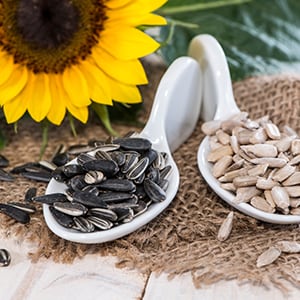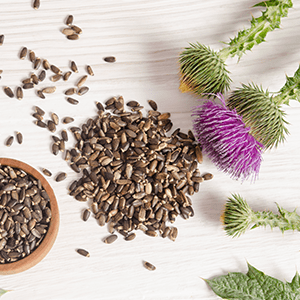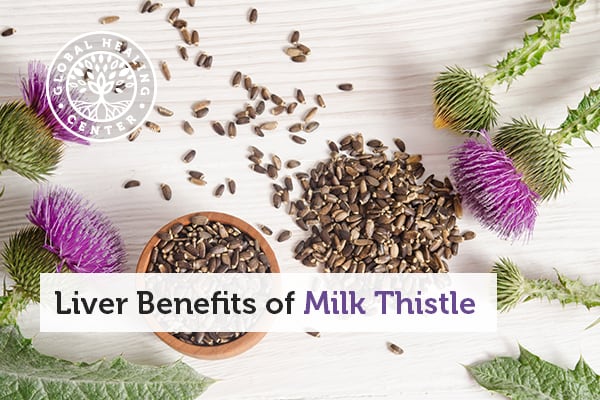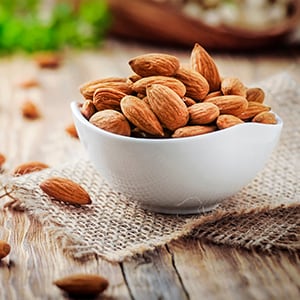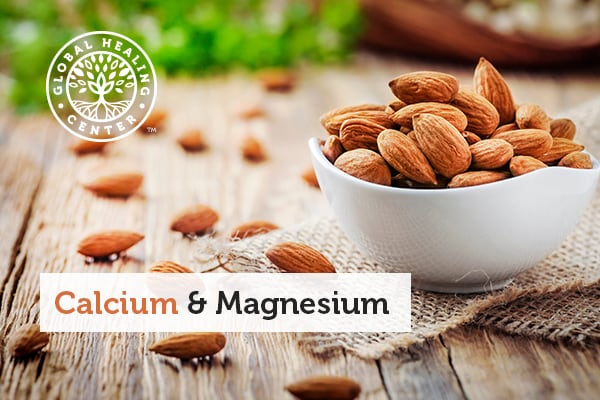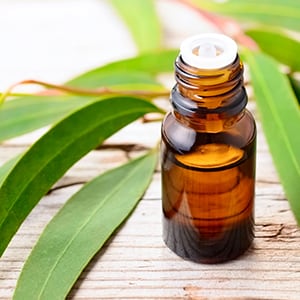
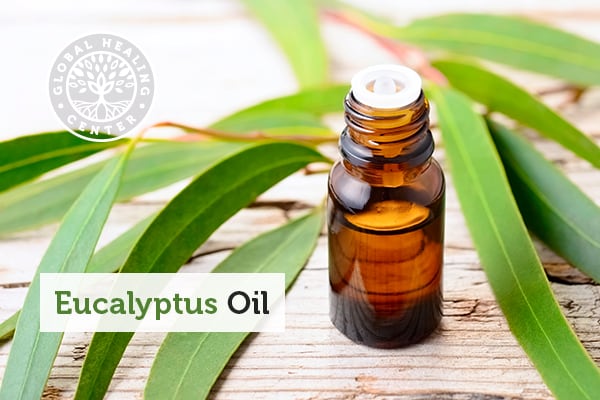
When you want a natural, effective relief for seasonal coughs and colds, eucalyptus oil is your essential oil of choice. This fragrant evergreen tree is a household favorite not only for its odor-eliminating leaves but also thanks to its healing properties. If you want to get the incredible benefits of eucalyptus while minimizing your exposure to toxic chemicals found in many over-the-counter products, try making homemade disinfectants, hand sanitizers, and mouthwashes.
Top 10 Benefits & Uses of Eucalyptus Oil
- Eases Congestion and Lung Irritation
- Fights Harmful Organisms
- Halts Skin and Nail Fungal Infections
- Fights Tooth Decay
- Nourishes Hair and Relieves Dry Scalp
- Helps You Breathe Easier
- Sanitizes Your Hands Without Chemicals
- Freshens Your Breath
- Repels Pests Naturally
- Freshens and Purifies the Air
What Is Eucalyptus Oil?
The eucalyptus tree is part of the Myrtaceae family and native to Australia, although these trees have been planted around the world. There are more than 500 species total and several are used to make the essential oil, including Eucalyptus odorata and Eucalyptus globulus.[1] The soothing, cooling essential oil is obtained through a complex extraction process that involves either distilling or cold-pressing eucalyptus leaves. Eucalyptus oil is generally colorless unless dyes are added.
A Brief History of Eucalyptus
The medicinal leaves of the eucalyptus have been used for centuries. Aboriginal Australians crushed and soaked the leaves to make medicine while the bark was used for everything from canoes to bowls. In 1777, a sample of the eucalyptus tree was brought back from Tasmania to the British Museum in London, where it was given a scientific name by Charles-Louis L'Héritier.[1]
Top Eucalyptus Oil Benefits
Eucalyptus is a must-have for your essential oil collection. Here are the top benefits it provides.
Eases Congestion & Lung Irritation
Besides doing battle against microbes, eucalyptus can reduce redness and swelling,[2] calming everything from your lungs to your skin, whether you have an illness or allergies. Researchers from Zhejiang University in China found that eucalyptus oil hinders the body's "toll-like receptor 4" (TLR4) response, a reaction that produces cytokines that lead to irritation and swelling. By limiting the toll-like receptor 4 reaction, eucalyptus oil may boost your immune system, allowing your body to heal quicker and more efficiently.[3, 4]
Combats Harmful Organisms
Eucalyptus has been found effective at reducing several microbes, including fungus, viruses, and bacteria species. When eucalyptus oil was placed in a petri dish along with various microbes, the oil proved effective against germs that cause many conditions, including cold sores, fever, acne, and sore throat.[5] One of the main components of eucalyptus oil is 1,8-cineole, a natural monoterpene also found in tea tree oil and rosemary.[6, 7, 8] The isolated 1,8-cineole has been shown to be less effective than the oil itself, indicating that various components may work together to keep your immune system strong and combatting harmful organisms.
Fights Tooth Decay & Bad Breath
Research found Eucalyptus globulus and Eucalyptus urograndis had antibacterial effects against mouth microbes linked to tooth decay.[9] E. globulus seems to be effective at preventing growth of bacterial biofilm; in fact, it was more effective than commercial-grade fluoride.[10] If you experience bad breath, eucalyptus extract may counter that thanks to its effectiveness against these odors.[11]
Halts Skin & Nail Fungal Infections
If you've ever had a skin infection, you know you want a gentle but effective remedy, which is why eucalyptus oil may be so promising. Not only does it reduce irritation, but it also helps fight highly contagious skin infections such a ringworm (also known as dermatophytosis) at its source. Researchers from Brazil found that the high concentration of the compound 1,8-cineole within Eucalyptus smithii fights harmful organisms that may infect the skin of cats, dogs, and humans.[12, 13] Eucalyptus oil also naturally repels nail fungus, so can be great for a foot soak.
Nourishes Hair & Relieves Dry Scalp
Hair products that include eucalyptus extract may help improve hair bounce and elasticity, starting at the roots, according to research in the Journal of Cosmetic Science.[14] Eucalyptus' healing effects can also help with an itchy scalp by boosting the production of ceramides in the skin — including the scalp. This improved hair gloss and changed hair fiber properties, regardless of race, age, or gender. Improved ceramide production from the use of eucalyptus oil also reduces scalp flakiness and irritation.
Top Eucalyptus Uses
Given the many health benefits eucalyptus oil provides, there are several ways you can use it in your daily life. Eucalyptus makes a wonderful addition to homemade products that can help you keep your body healthy and your home clean. Check out these ideas and let us know if you try any!
Helps You Breathe Easier
Clear up a stuffy nose or help ease chest congestion naturally with either a eucalyptus oil steam or a DIY vapor rub. Researchers found that eucalyptus oil can push pathogens out of the body, particularly from the lungs, cleaning out your system so germs are carted away by the body.[15, 16] Eucalyptus oil can also reduce phlegm in your airways,[5] making eucalyptus oil a key addition to popular over-the-counter vapor rubs and even throat lozenges. Most commercial vapor rubs are made from petroleum oil with chemical ingredients, so to reduce your exposure to toxins, make your own.[17] Not only do these homemade concoctions smell fantastic, but they can also help you breathe easier if you have a cold, cough or sinus congestion, or if you want relief from seasonal allergies.
Recipe: Aromatherapy for Congestion
Ingredients
- Eucalyptus oil
- Rosemary oil
- Water
Directions
- Boil water in a large saucepan.
- Add the heated water to a medium to large size heat-safe bowl and add 5-10 drops each of eucalyptus globulus and rosemary oil.
- Place a towel over the top of your head and the bowl and inhale the vapors for a few minutes.
If steam inhalation feels uncomfortable, you can get a similar effect by placing a few drops of eucalyptus and rosemary oil in your hot shower. The oils will naturally rise with the heat of the water, entering your nose, throat, and lungs for an invigorating lift. You can replace rosemary oil with peppermint oil if you prefer.
Recipe: Natural Vapor Rub
Ingredients
- Tasmanian blue gum (Eucalyptus globulus) oil
- Rosemary oil
- Peppermint oil
- Organic shea butter or coconut oil
Directions
- Mix 3-5 drops each of Eucalyptus globulus, rosemary, and peppermint oils with an eighth of a cup of either raw shea butter or organic coconut oil in a small bowl.
- Spread on your chest to feel better and breathe in the vapors.
You can transfer any extra to a glass container for safe storage. Use dark glass for optimal shelf life. This same mixture can be used to soothe aching muscles and joints since eucalyptus is reported to have antispasmodic properties.
Sanitizes Your Hands Without Chemicals
Research has shown that antibacterial soaps and cleaners may be causing harm to our individual and collective health by encouraging chemical-resistant bacteria.[18] But germs are everywhere and spread easily — especially when traveling, at the office, or in a school setting. Using a homemade herbal hand cleaner with eucalyptus and other oils offers a safer alternative.
Recipe: Alcohol-free Eucalyptus Oil Hand Sanitizer
This DIY hand sanitizer comes from Lawrence Rosen, MD.[19]
Ingredients
- Distilled water
- Aloe vera
- Eucalyptus oil
- Cinnamon oil
- Rosemary oil
- Clove oil
- Lemon, orange or grapefruit oil
Directions
- Fill three-fourths of a small (4 oz.) spray bottle with distilled water.
- Add one tablespoon aloe vera gel, ten drops each of eucalyptus, cinnamon, rosemary and clove essential oils, plus 20 drops of either lemon, orange or grapefruit essential oil for scent.
- Shake before each use and spray your hands two or three times.
Freshens Your Breath
Eucalyptus along with other oils can be added to distilled water to make a pungent but effective mouthwash that will freshen your breath and fight germs at the same time.
Recipe: Homemade Mouthwash
Ingredients
- Distilled Water
- Eucalyptus oil
- Tea tree oil
- Peppermint oil
- Baking soda
Directions
- Mix two drops each of eucalyptus and tea tree oil plus two teaspoons baking soda in a medium-sized (8-oz) airtight bottle filled with distilled water.
- Shake, then gargle with a mouthful.
- Rinse mouth out completely.
You can also brush your teeth with baking soda mixed with a couple of drops of essential oil.
Repels Pests Naturally
Some lice species have become resistant to traditional treatments like permethrin-based head lice shampoos, but a report in Parasitology Research finds that Eucalyptus sideroxylon and Eucalyptus globulus serve as effective treatments for head lice.[19]
Another pest, dust mites, thrive in household environments like bedding and couches and on soft toys; over time they can propagate into the millions on your favorite home items. Who knew that all you may need to do is toss in a little eucalyptus oil into your laundry to repel them naturally? Research published in Pediatric Allergy and Immunology found that adding eucalyptus oil to laundry (with hot water) killed more than 95 percent of dust mites.[21]
Recipe: Natural Insect Repellant
Ingredients
- Lemon eucalyptus oil
- Eucalyptus oil
- Lavender oil
- 8 ounces distilled water
Directions
- Add 3-5 drops each of lavender, lemon eucalyptus, and eucalyptus oils to 8 oz. of distilled water for a natural bug repellent.
- Some people put these in plastic spray bottles, but if you can find a dark-colored glass one, it will keep the essential oil potent for longer.
- Shake before each use.
You can also check out our other natural mosquito repellant suggestions.
Freshens & Purifies the Air
For a quick room refresh, one of the most popular uses for eucalyptus is as a room freshener and odor eliminator. You can place the leaves themselves in rooms to keep air fresh, but a drop or two of the concentrated oil goes a long way and helps absorb bad smells.
Recipe: Natural Eucalyptus Air Freshener
Ingredients
- 1/2 cup baking soda (or coffee beans)
- Eucalyptus oil
Directions
- To make your own room freshener, mix half a cup of baking soda or coffee beans in a small container with a few drops of eucalyptus oil for a natural air freshener.
- As the scent fades, you can add a few more drops of eucalyptus oil to your mixture.
What Essential Oils Blend Well with Eucalyptus?
Eucalyptus can help relieve stress, promote relaxation or give an energy boost, like a natural stimulant. For this reason, it makes a potent addition to essential oil diffusers or even handheld essential oil inhalers, such as the necklaces that have recently become popular. Eucalyptus oil is lovely by itself; but when combined with other essential oils, it becomes even better.
Lavender & Eucalyptus
This mix can be used for hair treatments such as scalp relief. Just add a few drops to your favorite shampoo and mix well. This combination also works well for homemade massage oils.
Tea Tree & Eucalyptus
An antiseptic and antibacterial blend of tea tree and eucalyptus oils can help combat harmful organisms linked to tooth decay.[22] Together, these oils can work well together in a mouthwash or homemade toothpaste.
Side Effects & Safety of Eucalyptus Oil
Use of essential oils directly on the skin can irritate, so it's important to dilute them with a carrier oil like almond, jojoba, olive or coconut oil before application. Essential oils should not be used on open wounds. Only food-grade essential oils should be taken internally. Essential oils are extremely concentrated, and therefore you should always take caution when using eucalyptus oil or any essential oil due to their potency and strength. Unless your healthcare provider recommends it, avoid using eucalyptus oil with young children.[22]
Points to Remember
Eucalyptus oil is an effective and beneficial essential oil. It's useful for congestion-related ailments from bronchitis to asthma and for relieving other symptoms typical of a cold. It can also be used in everything from hand sanitizer and deodorant to mouthwash and conditioner, thanks to all of its antiseptic, antibacterial, and inflammation-reducing properties. For these and many other reasons, eucalyptus oil should be part of your go-to healing must-haves for proven relief in a variety of home remedy recipes.
The post Eucalyptus Oil: Top Benefits & Uses With DIY Recipes appeared first on Dr. Group's Healthy Living Articles.
source https://www.globalhealingcenter.com/natural-health/eucalyptus-oil-benefits-and-uses/


